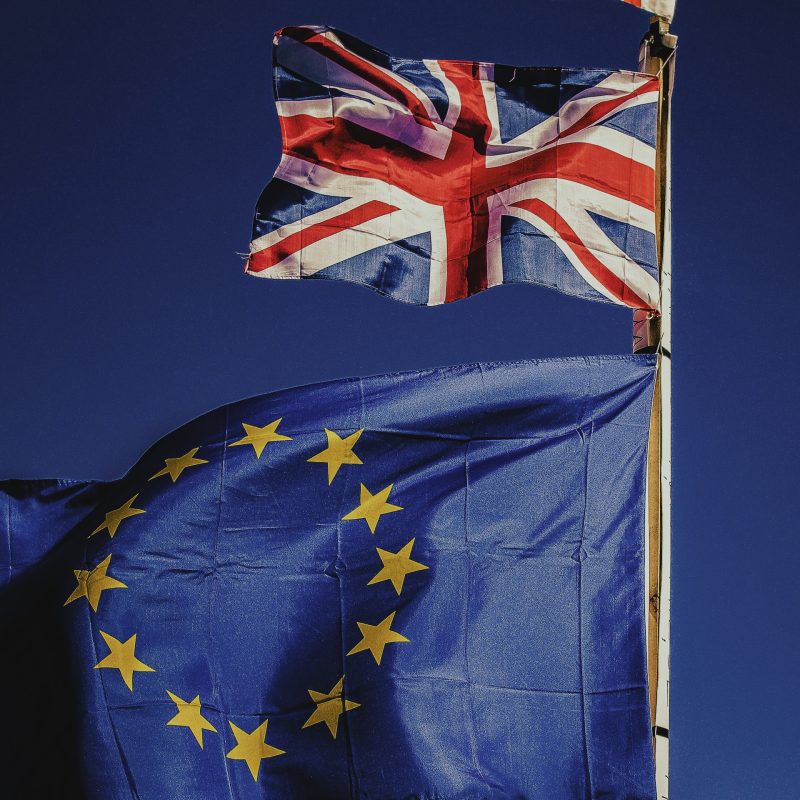Last Updated on: 4th January 2024, 04:45 pm
The United Kingdom decided to exit the European Union in 2016, and this departure was finalized on January 31, 2020.
Nevertheless, both parties reached an agreement to maintain existing arrangements until December 31, 2020, providing enough time to negotiate the specifics of a fresh trade agreement. The negotiations were intricate and occasionally contentious, but a final Trade and Cooperation Agreement (TCA) was eventually reached on December 24, 2020.
When the Brexit transition period ended in 2020, global banking stopped easy access to other countries’ markets within the same region. Since it meant they were no longer seen as part of the EU starting in 2021, UK banks couldn’t provide services in the EU as easily as before.
To solve this, some UK banks made new counterparts of their banks in the EU countries that are closely watched by EU banking authorities, especially regarding how they manage risks. Among these banks are Barclays Europe and NatWest Markets.
Eurozone’s Interest Rate Reference
In the EU financial landscape, Euribor plays a crucial role. Euribor (Euro Interbank Offered Rate) is the average interest rate at which European banks lend funds to each other in euros. The purpose of Euribor is to serve as a standard reference rate that reflects the cost of borrowing for financial institutions in the interbank market within the Eurozone.
It’s used for various financial products, including adjustable-rate mortgages, business loans, financial derivatives, and other interest-sensitive instruments. Euribor provides a benchmark against which lenders can set their interest rates, providing transparency and stability to the financial market.
The UK leaving the EU has benefits for how interest rates work. One advantage is that it makes the UK less reliant on the stability of the Eurozone, the group of countries that use the euro as their currency. This means the UK is less affected by the Euribor interest rate changes, which are tied to the euro. It gives the UK more control over its financial stability.
Much like the strategic moves in theBook of Ra game, the UK gains strategic prowess over financial policies. With more control over monetary policies, the UK can make rules that fit its goals and needs, such as customizing regulatory frameworks to suit specific sectors within the financial market and promoting growth and stability.
The independence to set interest rates aligns with the UK’s economic goals in several ways. This independence permits a proactive response to economic challenges. The UK can swiftly adjust interest rates to mitigate adverse impacts and stabilize its economy if global economic shifts or financial crises occur. This flexibility is crucial in maintaining financial stability and protecting the interests of individuals and businesses.
Flexibility in monetary policy is like having the ability to change the rules of a game to make it fair for everyone playing. In the UK, this means the people in charge can adjust how they manage money to suit what’s happening in the UK’s economy.
For example, if many people buy lots of things and prices are going up too fast (inflation), the people in charge can decide to make borrowing money a bit more expensive. This can slow down spending and keep prices from rising too quickly.
On the other hand, if only a few people are buying things and businesses are struggling, they can make it cheaper to borrow money. This can encourage more spending and help businesses grow.
This flexibility is essential because the UK’s economy is sometimes different. It goes through ups and downs like a rollercoaster. Changing how they manage money helps the UK steer its economy in the right direction and keep things stable and fair for everyone.
According to a survey conducted by the British Chambers of Commerce, over 75 percent of UK companies find it difficult to increase sales and grow their operations due to the trade agreement between the UK and the EU.
“Businesses feel they are banging their heads against a brick wall as nothing has been done to help them, almost two years after the TCA was first agreed,” said BCC director general Shevaun Haviland.
There is a lot more paperwork and regulation for firms after Brexit. Even seemingly straightforward tasks — such as ordering supplies or machine parts from the EU — have grown incredibly difficult and time-consuming, especially for small enterprises.
The UK should reach more agreements with the EU and its nations. This recommendation is from the British Chambers of Commerce, which frequently poll businesses about their experiences. It will make it easier for companies to travel and conduct business, improving trade between the UK and the EU.
Trends in Digital Financial Services
Digital financial firms have made significant progress in development and trends in recent years. What sets them apart is their ability to offer tailor-made services to entrepreneurs, small businesses, startups, and freelancers, addressing a growing demand.
These emerging financial services are now a substantial competition for traditional banks, focusing on integrating various databases, providing speedy services, and addressing individual customer needs.
Despite a growth slowdown, modern fintech companies are playing a crucial role. Their features — like higher interest rates, lower fees, and excellent customer service — are not the only factors driving their appeal. These companies are continuously innovating and introducing new products beneficial for SMEs.
Looking ahead, the future of digital financial companies in the UK seems promising, with projections pointing to a potential value of $2.6 trillion by 2032 based on present trends.
On the other hand, employment dynamics in the business landscape are evolving. Despite the growth deceleration, small businesses have demonstrated robust employment growth, surpassing their larger counterparts across various sectors in June.
This surge in employment can be attributed to small businesses proactively adjusting to anticipated business needs and seizing the opportunity to fill positions as candidate availability improves.
NatWest’s Chief Economist Sebastian Burnside said businesses have faced challenges due to this year’s rapidly changing economic landscape. Despite predictions of a recession, demand remained strong. However, the recent rise in interest rates poses a threat, potentially affecting investments in sustainability initiatives.









